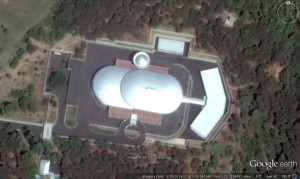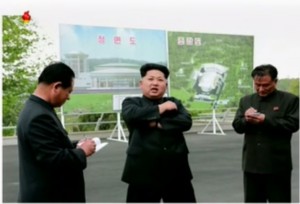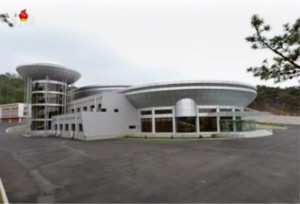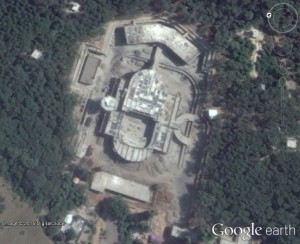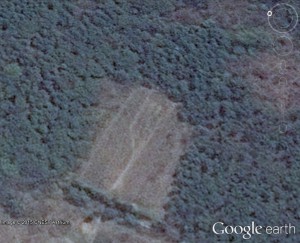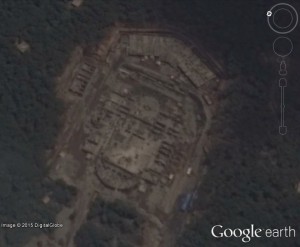UPDATE 1 (2015-7-17): Chongryon chief’s son pleads not guilty. According to Kyodo:
One of two men linked to the pro-Pyongyang group Chongryon have pleaded not guilty to illegally importing mushrooms from North Korea.
Ho Jong Do, a son of Ho Jong Man, who heads the General Association of Korean Residents in Japan (Chongryon), said the charges were totally wrong as their trial opened Thursday in the Kyoto District Court.
The other defendant, Kim Yong Jok, president of a Tokyo-based company affiliated with Chongryon, pleaded guilty.
The men imported about 3,000 kg of matsutake mushrooms produced in North Korea, worth around ¥7.6 million, via China in September 2010, prosecutors said.
Japan has banned imports from North Korea as part of sanctions against the country over its nuclear arms and missile development programs.
Japanese investigators have alleged North Korea aimed to obtain foreign currency by exporting the highly sought-after mushrooms.
ORIGINAL POST (2015-5-12): According to the Kyodo:
Police on Tuesday arrested three men, including the son of the head of the pro-Pyongyang group Chongryon, on suspicion of illegally importing a shipment of matsutake mushrooms from North Korea.
Masamichi Kyo, 50, whose father is Chongryon chief Ho Jong Man, runs a Tokyo-based company affiliated with the organization.
The investigation — carried out by Kyoto police and three other prefectural police forces — involved raids in March on sites related to Chongryon, also known as the General Association of Korean Residents in Japan.
The group has functioned for decades as North Korea’s de facto embassy in Japan in the absence of diplomatic ties between Tokyo and Pyongyang.
Kyo’s arrest could further complicate bilateral ties, given that the initial raid prompted North Korea to lash out, with Pyongyang declaring that talks with Japan would now be “difficult” to achieve.
Foreign Minister Fumio Kishida said Tuesday that police are “conducting their investigations based on law and evidence.”
A source close to Chongryon said Kyo is widely regarded as Ho’s bookkeeper, although he kept a low profile at Chongryon and only served in a senior post at one of the group’s local chapters in Tokyo.
The two other individuals arrested were Kim Yong Jak, 70, the president of the company Kyo works for, and Kazuhide Yamanaka, 63, a senior official at a related company.
The three are suspected of conspiring with two other men on Sept. 27, 2010, to import illegally via China some 1,800 kg of matsutake mushrooms from North Korea. The shipment was worth around ¥4.5 million.
“This is a false accusation,” Kyo said as he was escorted by investigators out of his condominium following his arrest Tuesday morning.
Officers quoted him as saying, “I will not cooperate as this is an unjustified arrest.”
The police suspect the mushroom shipment was part of North Korea’s bid to acquire hard currency, as Japan has maintained an embargo on imports from North Korea since October 2006. The measure is part of a package of sanctions by Tokyo on Pyongyang for its missile and nuclear tests.
The focus of the investigation is whether Kyo acted on the orders of the North Korean government.
Chongryon sources say Kyo served as an executive of the association’s Adachi branch, but he has not worked at the headquarters in Chiyoda Ward and was not a high-profile activist for the group.
That is why investigative sources say surveillance was “lax” on him, and Kyo was able to visit North Korea as his father’s proxy. A re-entry ban on Ho meant he stayed in Japan while his son traveled.
When the economic sanctions preventing Ho’s re-entry were partially lifted and Ho was able to visit North Korea last September, his wife and Kyo were already in Pyongyang when he arrived, investigative sources say.
Because investigators believe the mushroom deal was part of North Korea’s measures to secure foreign currency, they are now examining the transfer of funds between Chongryon and Pyongyang.
At around 6:40 a.m. Tuesday, about a dozen investigators carrying cardboard boxes entered Kyo’s condo in Adachi Ward.
About 30 minutes later, Kyo emerged, wearing a mask and a cap, looking down and surrounded by investigators.
Separately, Japan and North Korea are at loggerheads over stalled bilateral talks on Pyongyang’s abductions of Japanese nationals in the 1970s and 1980s.
Read the full story here:
Chongryon chief’s son arrested over suspected N. Korea mushroom imports
Kyodo
2015-5-12

